“I can be changed by what happens to me. But I refuse to be reduced by it.”
- Maya Angelou
GRADUATES of the Class of 2021 know quite a bit about RESIELIENCY. Congratulations from the CHS faculty, staff, and students. In the words of St. Ignatius Loyola, Go Forth and Set the World on Fire with your commitment to Diversity, Equity, and Inclusion. For our returning students we look forward to welcoming you back to our 4th floor CHS home in McGurrin Hall. We hope that you will have a relaxing summer. Take time to enjoy your family and friends and do something you love to rejuvenate your spirit.
We look forward to seeing you walking on campus, enjoying time with friends at Einstein’s, relaxing in the Therapy Garden, and all together in the classroom,


On behalf of the CHS staff and faculty, we wish you all the very best,
Lori A. Bruch, Ed.D., CRC, LPC Chair, Counseling and Human Services
Fitness for the Profession 2 Resiliency Introduction 3 Faculty 4 Faculty 5 Students 6 Students 7 Events 8 Honor Societies 9 Internship Experiences 10 StudentAwards 11 Congrats Graduates 12 Alumni Successes 13 ABA 14 Faculty Updates 15 Faculty Awards 16 Publications & Presentations 17 Faculty Fun Fact & Contacts 18 Accreditations 19 Disability Conference 20 COUNSELING & HUMAN SERVICES THE UNIVERSITY OF SCRANTON RESILIENCY Spring 2021 VOLUME 12, ISSUE 24 Counseling and Human Services Departmental Newsletter
10 Dimensions of Fitness for Profession for Counselors-in-Training
The Fitness for the Profession Document helps in the evaluation of an individual’s beliefs, attitudes, and behavior in many areas of one’s life, such as academic, clinical, professional, and personal. The CHS Department hopes that this document will help in the self-assessment, self-correction, and self direction of each student on the path to becoming a professional counselor. The list below are the 10 dimensions of the document that are important in the training of a counselor and in the practice of a professional counselor.
1. Commitment to Wellness
-The lifelong commitment to becoming the best one can be spiritually, men tally, physically, socially, and vocationally.
2. Commitment to Learning
-The ability to self-assess, correct, and direct; continually seek knowledge and understanding; demonstrate academic and life management skills.
3. Core Academic and Clinical Competences
-Holds knowledge in the core areas of certification.
4. Professional Identity
-The commitment to ongoing development as a professional with the ability to put theory-into-practice.
5. Personal Maturity
- Ability to live and function at appropriate level of emotional, psychological, and relational wellbeing; freedom from limitations to one’s professional performance.
6. Responsibility
- Ability to fulfill professional commitments, be accountable for actions and outcomes; demonstrate effective work habits and attitudes.
7. Interpersonal Skills
-Ability to interact with clients, families, other professionals, and the community effectively.
8. Communication Skills
- Ability to communicate effectively (speaking, body language, reading, writing, listening) for varied situations; sensitive to diversity.
9. Problem-Solving
-The ability to seek out resources for help, support, and insight.
10. Stress Management
-The ability to recognize sources of stress and how they affect an individual,; ability to develop effective coping techniques; seeks appropriate support
PAGE 2 VOLUME 12, ISSUE 24
Fitness for the Profession, a lifelong journey
What Does Resiliency Look Like?
The concept of resiliency describes a way of teaching oneself to overcome obstacles throughout life and making the conscious decision to not let those obstacles define who you are as a person. As members of the CHS profession, we are tasked with not only promoting resilience in others, but embodying resilience to lead as an example to others. Such a task is not always a simple or easy one, yet sometimes when we are most vulnerable, we discover an inner strength never realized before. Resilient behavior can range from focusing on one’s ability to be in control, having a positive outlook and mindset, as well as reframing adversities to opportunities for growth. With each of these, and so many more, we learn how to push forward and possess the ability to help those around us do the same.
The past year has certainly reflected the true meaning of resilience; showing us that perseverance truly conquers all. Many of us have had to alter our daily routines or completely start anew and learn how to navigate this virtual transition. Despite these challenges, we are here. We are all still here and standing united and stronger than ever in the CHS department. We have relied on one another for support and sought out our allies to learn how to best navigate the challenges that arose in our midst. Through it all, we have grown as both individuals and as a department. Regardless of the hardships we have faced, we ALL remained strong and resilient.
Reflecting on the struggles during this pandemic has made many of us revisit similar tribulations of the past and look to the future as a sign of hope. Similarly, an excerpt by the incomparable Maya Angelou, in her poem Still I Rise, reads:
“You may write me down in history
With your bitter, twisted lies, You may trod me in the very dirt But still, like dust, I’ll rise.
Does my sassiness upset you? Why are you beset with gloom?
’Cause I walk like I’ve got oil wells
Pumping in my living room. Just like moons and like suns, With the certainty of tides, Just like hopes springing high, Still I’ll rise.
Did you want to see me broken?
Bowed head and lowered eyes?
Shoulders falling down like teardrops, Weakened by my soulful cries?
Does my haughtiness offend you?
Don’t you take it awful hard
’Cause I laugh like I’ve got gold mines Diggin’ in my own backyard.
You may shoot me with your words, You may cut me with your eyes, You may kill me with your hatefulness, But still, like air, I’ll rise.
Does my sexiness upset you?
Does it come as a surprise
That I dance like I’ve got diamonds
At the meeting of my thighs?
Out of the huts of history’s shame I rise
Up from a past that’s rooted in pain I rise
I’m a black ocean, leaping and wide, Welling and swelling I bear in the tide.
Leaving behind nights of terror and fear I rise
Into a daybreak that’s wondrously clear I rise
Bringing the gifts that my ancestors gave, I am the dream and the hope of the slave. I rise I rise I rise.”
Written by: Amanda Taylor
PAGE 3 VOLUME 12, ISSUE 24
As a counseling professional what is one of the big concerns or issues that you have experienced with the pandemic and factors that have helped you be resilient during this trying time?
The pandemic has been a difficult time for everyone. For me one of the hardest things has been being away from the people I am closest to. The pandemic caused me to limit my travel plans which directly impacted how often I saw my family and friends. Currently, it’s been about 8 months since I’ve seen any of them in person. This has certainly led to a lot of feelings isolation and loneliness, which I’ve found a lot of other people across the world are experiencing. To help combat some of that I’ve made sure to make an active effort to stay in touch with my friends and family. My best friend and I have a weekly zoom session which is a great chance of us to catch up and see each other. My brother and some of my other friends stay connected by playing video games online together. I’ve also made some changes to my individual schedule to help keep me more occupied - such as implementing an exercise routine and cooking more. While this has all been helpful, I honestly can’t wait for the day when I can hug my family and friends again!
Dr. Lund, Assistant Professor, CHS

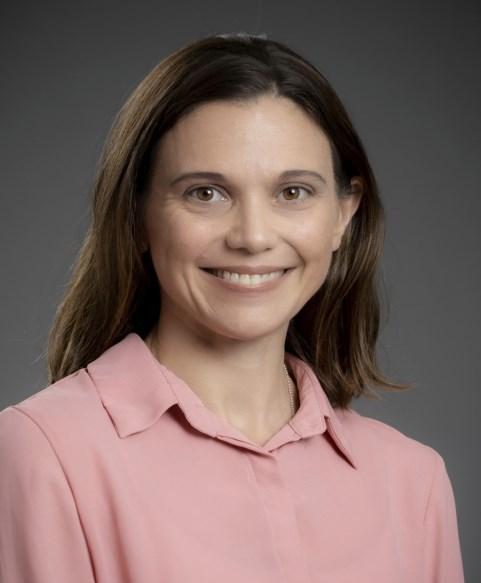
As a counseling professional what is one of the big concerns or issues that you have experienced with the pandemic and factors that have helped you be resilient during this trying time?
I think this pandemic has brought up very different issues for people depending on their developmental and family contexts (e.g., living with large families, living alone, working too much, being bored, etc.). To maintain wellbeing, we all have to figure out a balance that meets the whatever needs are lacking in our respective worlds. For example, my family moved to the Scranton area just months before the community went into lockdown. We had a hard time with the virtual school (shocking, right?!) and feeling powerless to meet work obligations (or even log on to the right Zoom meeting). So much changed so rapidly, and we lacked opportunities to feel successful in adapting to our new environment. Thus, we built in SMART goals (specific, measurable, attainable, realistic, and time-limited) and created our own ways of experiencing mastery/self-determination. We set up book reading challenges, cooking projects, planned weekend hikes and overnight trips, and started learning German (that one hasn't panned out so well). But meeting even the smallest goals allows for a much-needed sense of pride and power in these uncertain times.
Dr. Gadaire, Visiting Assistant Professor
PAGE 4 Faculty
Volume 11, Issue 22
As a counseling professional what is one of the big concerns or issues that you have experienced with the pandemic and factors that have helped you be resilient during this trying time?
A personal issue for me has been working alone. You know our department and how we share and hang out in each other’s office and value students stopping by to visit. Because I’m late with this, and Amanda has hounded me too many times to finish this I will share my Surfer’s Rules as I think myself, my colleagues, and counseling graduate and undergraduate students have truly put these into action during the past year. They truly speak to me of the resilience we have all shown, how we have moved forward in unbelievable ways, tackled new and innovative projects and programs, and stayed connected. I’ll let each of you reflect on how they fit for your work as a faculty member or counseling student during the past year.
Have a passion for the water.
No dare, no flair.
Expect to wipeout.
Don’t turn your back on the ocean. Move before the wave moves you.
Never surf alone.
Remember, never surface alone – even if you have to reach out in new and different ways.
Dr. Eschbach, Associate Professor, School Counseling

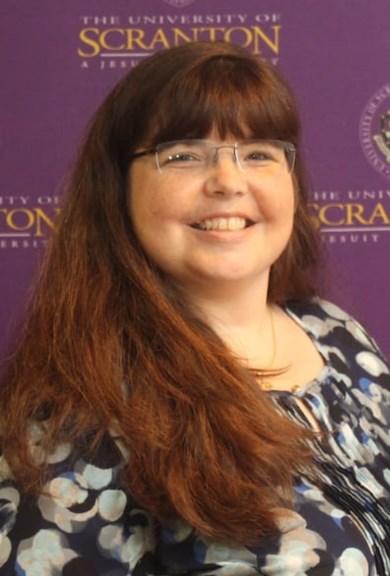
As a counseling professional what is one of the big concerns or issues that you have experienced with the pandemic and factors that have helped you be resilient during this trying time?
The isolation caused by the need to work/study from home during the pandemic was extremely difficult for many people, including my (very extroverted) self. Used to the busyness of the Scranton campus, the chatter of voices on 4th floor McGurrin, and the spontaneous office visits by students or fellow colleagues saying hi, needing to chat, or wanting a chocolate pick-me-up, the insular nature of the pandemic was mentally draining. I knew many of our students were dealing with this issue as well. The Ignatian ideal of cura personalis (care of the person) is often used when caring for others. However, we often forget that care of the person includes ourselves. So how can we care for ourselves while we are caring for others during the pandemic?
Dr. Troy, Assistant Professor, CHS
Self-care! To help my students with self-care and resilience, I had many of them create a self-care plan and “assigned” them the task of completing at least one item on their plan. I also encouraged them to reach out (virtually) to friends and family, set aside time for something fun, and get outside when they could. For myself, I scheduled virtual family game nights with siblings, nieces, and nephews who live across the US and in Europe (multiple time zones were always a fun challenge), baked goodies with my children, and devoted time to becoming a better photographer. Resilience doesn’t have to come from big, grand events. Resilience can be built or enhanced by small, everyday acts of cura personalis.
PAGE 5
Faculty Volume 12, Issue 24
What obstacles or challenges have you faced during this pandemic and how have you learned or developed to be resilient?
During this pandemic, I struggled with loneliness and finding an internship for this spring. Last March was a rough time for all, but I personally struggled with being away from my Scranton friends and finding an internship for the spring. I overcame my battle with loneliness by keeping busy with at-home projects and facetiming my friends from school every Friday.Anxiety regarding finding an internship placement for the Spring semester arrived mid-fall when I received a number of rejections from potential placements – they were not taking interns, or their positions were full. Thankfully, I persisted, and Lackawanna College accepted me as an intern in their Student Wellness Program! I developed resiliency by being hopeful and continuing positive thinking to get me through that stress, knowing that I would soon be back in Scranton with my friends, and welcomed to an internship placement.
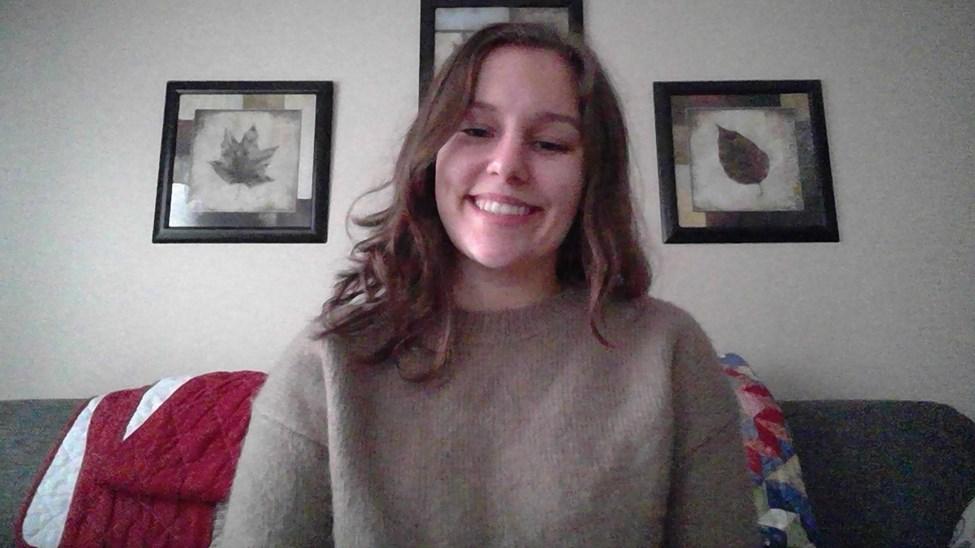
What obstacles or challenges have you faced during this pandemic and how have you learned or developed to be resilient?
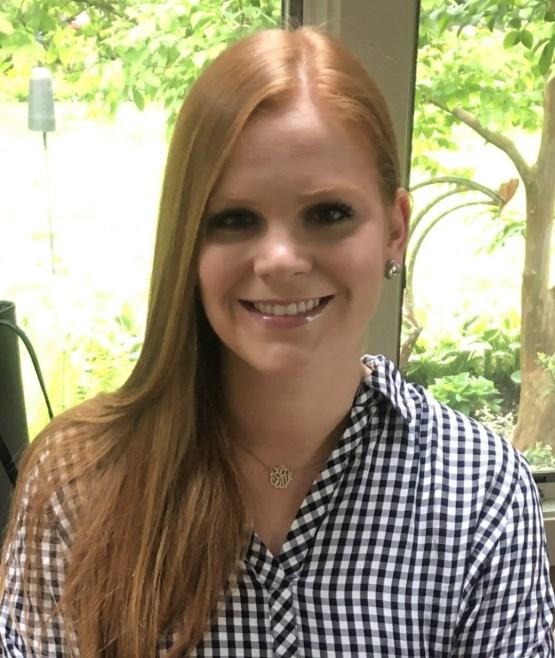
The pandemic brought a variety of unexpected challenges to everyone’s lives last March. School, work, and even counseling sessions were transitioned to full virtual models. Plans with family, friends, and activities we enjoy were cancelled indefinitely. In a time where all sense of normalcy was lost, resilience was demonstrated. I found that for me and many others, taking control of the situation and putting a positive spin on it helped cope with the uncontrollable events we all faced. It was a time where life slowing down allowed many people to engage activities and hobbies they enjoyed. People got creative to stay connected with loved ones and meaningful relationships became evident. The pandemic helped me realize how much time I spent worrying about responsibilities and not enough time focusing on self-care activities. This allowed me to develop a healthy balance in my life. The balance between our professional lives and personal lives is something that I think we all need to reflect on from time to time.Although the pandemic has brought many negatives, my hope is that many people were able to strengthen resiliency skills and have positive experiences through this unprecedented time.

PAGE 6 VOLUME 12, ISSUE 24
Regina Schetroma, CHS Internship Student
Sarah Redick, School Counseling Student
Students
What obstacles or challenges have you faced during this pandemic and how have you learned or developed to be resilient?
While it is easy to look at this pandemic in a negative light; I have tried looking at these challenges/obstacles as lessonsfor growth. This past year has challenged many of us in new ways and has pushed us outside of our comfort zones. One of the major areas of growth for me was learning how to deal with uncertainty. In the beginning, conflicting comments and stories were coming out about what was happening leaving us with so much confusion, causing panic and chaos. There was a lot unknown not only in the world but also in my personal life - would I still have a job, how will my classes continue and when will I see my family and friends? Being someone who likes having the answers and a plan, this was not an easy transition for me. There were many ups and downs, but through it all, I feel as though I have come out more adaptable. Being resilient does not mean we won’t experience obstacles or distress, but that we are able to take those experiences and come back stronger and more powerful than before. This year, I have learned the importance of being kind to yourself as well as reaching out for support during distressing times. This pandemic gave everyone time to pause and reflect a little bit. We often get caught up in the fast-paced world we live in without taking much time for ourselves. Now that things have started to return to ‘normal’, I have noticed an increased emphasis regarding the importance of social connections. I am hopeful that we can continue this path towards greater support and integration.
What obstacles or challenges have you faced during this pandemic and how have you learned or developed to be resilient?
As I have been reflecting on this past year and what we have all been through both individually and collectively, the first word that comes to my mind is resiliency. I have been so inspired by family, friends, peers, clients, and strangers that have overcome so many obstacles. Despite the pain and suffering that so many of us have experience, we are coming out of this pandemic stronger with an increased capacity and ability to handle challenges. Resiliency to me means being able to get back up and continue to press on despite feeling defeated, weak, broken, empty, hurt, overwhelmed, stressed, etc.
At the start of the pandemic, I was trying to figure out what would be more difficult: counseling with masks or counseling via telehealth platforms. Many of our counseling classes have focused on attending to nonverbals and how important it is to the counseling process. Well, half of our nonverbals have been covered up by masks making it challenging to see a client’s full emotional expression. But as humans who are adaptable, we have been able to understand emotions without seeing all of the nonverbals. Another key component of the counseling process is creating a comfortable space in the room. Well, telehealth certainly alters the connection we have with clients.
Professionally, this has been one of the most challenging parts of the pandemic for me. There have been several sessions withclients that I really struggled to effectively communicate empathy to clients through the screen and found myself getting very distracted and frustrated. With the help of my internship supervisor (Shout out to Larissa Schwass), I have been able to find ways such as using a stress ball or a fidget spinner to help me be more empathetic and engaging through a screen. The shifting from in person to telehealth has made us resilient. This wasn’t something we were taught in the classroom, but we were taught how to overcome challenges, how to adapt, and the importance of self-care. Most importantly, this shift has allowed me to focus on my presence to a counselor to my clients. Each week I am reminded that our presence in the therapeutic relationship is one of the best gifts we can offer to clients.
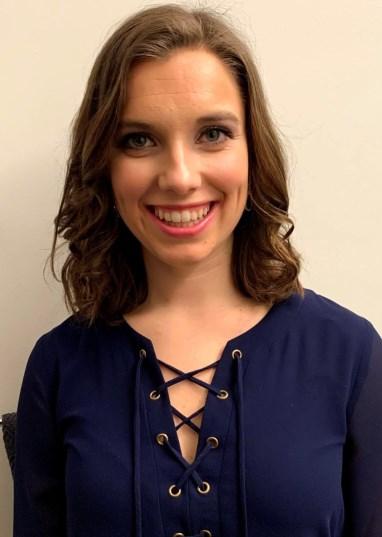
Personally, I have drawn from my spiritual beliefs as a form of my self-care over the last year. Each morning I allow time to be quiet and still; to connect with God as I prepare for the day and draw from His strength. God has been very helpful for me in building my resilience. There have been many times where I feel weak and feel like I cannot handle what is in front of me; these are the times that I especially try to anchor into what grounds me despite any chaos, uncertainty, or storms going on around me. What is it that anchors you?
A verse that has been helpful for me is from 2 Corinthians 1: 3-4: “Praise be to the God and Father of our Lord Jesus Christ, the Father of compassion and the God of all comfort, who comforts us in all our trouble so that we can comfort those in any trouble with the comfort we ourselves receive from God.” God has comforted me and been my anchor over the last year which has allowed me to grow in resiliency and has helped me be well so that I can be present for my clients.
As we look back and think of this last year, let us take a few moments to celebrate what all of us individually and collectively have overcome despite the extreme challenges we have all faced! Keep up the amazing work you are all doing!!

Students PAGE 7 VOLUME 12, ISSUE 24
Candice Baumher, Rehabilitation Counseling Student
Julia Decker, CMHC Student
Events
Interdisciplinary Professional Panel Presented by: CHSA and TUA
On March 29th, 2021 an Interdisciplinary Professional Panel was hosted by the undergraduate organizations CHSA and TUA. Panelists were recruited from the University and Scranton community. The panelists represented varying professions within the counseling and human services field such as higher education, social work, school psychology, applied behavior analyst, private practice counseling, and equine-assisted trauma therapist to name a few. Graduate students were also among the panelists.
The virtual event received a great turnout of undergraduate and graduate students who were able to learn about career resources, graduate programs, and the diverse occupational experiences and professions of the panelists. The event concluded with a question and answer session that highlighted the panelists’ passion for their work and the students’ passion to begin their own journey into the counseling and human services field.
Be on the lookout for future events like this one in the future!
On April 9th, 2021 a Virtual Professional Development Symposium was hosted by Chi Delta Rho. Due to the virtual format, panelists were able to join from different states. Chi Delta Rho heard the students’ wishes to learn more about private practice, therefore, the topic of discussion for the event was preparing students for post-graduation opportunities and challenges of opening, operating, and sustaining a private practice.

The virtual event received a good turnout of graduate students who were able to participate in the question and answer format of the symposium. To show gratitude towards the panelists participation, CDR asked each panelist to select a charity or organization to which CDR will donate one hundred dollars too. The panelists chose the following organizations to donate: HUBA, Nance Memorial Scholarship, Friends of Nay Aug Park, and Children’s Advocacy Center of NEPA.

PAGE 8 VOLUME 12, ISSUE 24
Virtual Professional Development Symposium
Chi Delta Rho Academy
Honor Societies
The Chi Delta Rho chapter of Chi Sigma Iota at the University of Scranton, hosted a virtual induction ceremony for new inductees on Friday,April 23rd. The following students have been initiated into the University of Scranton’s Chi Delta Rho:
Mariah Carey, Caitlyn Cassara, Samantha Catania, Carissa Ceballo, Kaitlyn Chestnut, Maria Cinti, Kelly Clarke, Kate Dalrymple, Tia DeLeo, Mykeyah Dempsey, Amy
Domanish, Mackenzie Duffy, Natalie Gray, Elizabeth Hearon, Lauren Hudak, Elizabeth Keen, Kayla Kincel, Kristen Kondrosky, Daphne Leenas, Mei Lin McElhill, Nichole
Musewicz, Mary Kaitlyn O’Hara, Jillian
Paulus, Alexis Pileggi, Gina Romano, Erin Scafella, Parker Shannon, Megan Smith, Brianna Stangline, Amanda Taylor, Erin Williams, & Christopher Zinkle
-Faculty Advisor: Dr. Bordonada
Congratulations to all the new members!
The spring Tau UpsilonAlpha Induction Ceremony was held virtually on May 7th to induct new members and recognize the inductees from 2020. The following students have been inducted into TUA:

2020—Aidan Keith Burrows, Megan M. Cummings, Kelly Goria, Cassandra Haw, Emily Howells, Natalie Anoush Kinoian, Samantha Kyle, Serena Martine Mancini, & Kaycee O’Neil
2021 Anne K. Murphy, Kerry Holt, Mia Gabrielle Sandy, Fiori Jerome Tannenbaum, Marino David Angeloni, Madeline DeBaro, Rose V. Hricko, Nicole Elizabeth Gomber, Nicholas J. Sumner, & Natalie J. Intrieri
New Officers:
President: Fiori Tannenbaum
VP: Kaycee O'Neil
Treasurer: Serena Mancini
Secretary: Nicole Gomber
Congratulations to all 2020 and 2021 members!

PAGE 9 VOLUME 12, ISSUE 24
Chi Delta Rho Induction Ceremony
Tau Upsilon Apha Induction Ceremony
Internship Experiences
Hi everyone! My name is Deidre Dzugay, and I had the wonderful honor of completing an internship at Marywood’s Counseling and Student Development Center. The amount of empathy, respect, and kindness from every single staff member (and other interns) is absolutely astonishing. I can’t recommend completing your internship here enough! Throughout my time here, I was able to have my own caseload of clients with varying diagnoses and concerns, be a part of multiple outreach events, and receive incredible support through supervision. The outreach aspect of this experience was definitely my favorite part. I was able to share my advocacy throughout different events that discussed things like eating disorders, dealing with COVID, and sexual assault. In regard to the supervision aspect, anytime I ever had self doubt, concerns, or questions, there was always someone there to help me. I never felt like I was only allowed to talk to my individual supervisor as every staff member truly went above and beyond to support me in my experience. Overall, completing my internship experience at the CSDC has allowed me to grow more into the counselor I want to be!



Internship Site: Scranton Counseling Center - Psychiatric Rehabilitation Department
For my internship, I was lucky enough to continue my work as a Psychiatric Rehabilitation worker. Psychiatric rehabilitation promotes recovery, full community integration, and improved quality of life for persons who have been diagnosed with any mental health condition that seriously impairs their ability to lead meaningful lives. Psychiatric rehabilitation services are collaborative, person-directed and individualized. This service focuses on helping individuals develop skills and access resources needed to increase their capacity to be successful and satisfied in the living, working, learning, and social environments of their choice. I was able to implement new groups - such as a community integration group. During this group, members would work on increasing skills, such as social, budgeting and organizing, as well as community knowledge to help plan and implement gatherings outside of the group. Additionally, I was able to learn and work towards obtaining a mobile license for the program, to expand the services we can provide. It has been a great experience pushing myself to learn and grow outside of my comfort zone. I am looking forward to continuing these new ideas and groups - as well as working to develop more.
Internship Site: Honesdale High School & Carbondale Area Elementary School
My school counseling internship has been, by far, my favorite experience during my graduate level schooling. This experience has given me the chance to combine all the skills and techniques, we have studied so hard for, into reality. Everyday is a new adventure gaining knowledge and experience in a hands-on manor. Internship has improved my confidence within my abilities tremendously. I truly feel prepared to accept a position within a school district as a Professional School Counselor. I am so thankful to have chosen this school and this program, I would not be where I am today without it.
PAGE 10 VOLUME 12, ISSUE 24
Deidre Dzugay, Clinical Mental Health Counseling
Candice Baumher, Rehabilitation Counseling
Kristine Komar, School Counseling
Student Awards
Outstanding Undergraduate Student in Counseling and Human Services Award

As someone who came to college without a path or passion, I am beyond humbled to be recognized with the Outstanding Undergraduate Student in Counseling and Human Services Award. I am the recipient of this award only because CHS faculty fostered my passion for helping others and empowered me to be the best student I could be. Graduating with a true sense of passion, and a confirmation that I found my calling is the greatest gift I could have ever received, and I have this wonderful University and the entire CHS department to thank. Best wishes to all the CHS students still working towards their degree, savor every moment of your time here, the work is worth it!
Outstanding Graduate Student Award in Rehabilitation Counseling
I feel honored and privileged to have received this award. I appreciate all the professors and staff in helping me to become the counselor I am today. I am forever grateful for Dr. Dalgin and Dr. Bruch for pushing me to grow and further develop my skillset. I truly feel that the Rehabilitation Counseling program has provided me what I need to be successful in my career and serve my clients. Thank you to my parents, fellow graduate students, and friends who have supported me along the way in reaching my goals.
Outstanding Graduate Student Award in School Counseling
My time in the counseling program has been an invaluable experience. I am thankful for the support of my family and mentors who helped me succeed. I am excited to help students brighten their future.
Outstanding Graduate Student Award in Clinical Mental Health Counseling


I would like to extend my sincerest appreciation to the Faculty and Staff of The University of Scranton with a special shout-out to the Counseling and Human Services Department, my treasured home forever. I intend to, “Go Forth and Set the World on Fire,” as the fiercest, most empathetic Holder of Hope andAgent of Change!

PAGE 11 VOLUME 12, ISSUE 24
Cassandra Enck
Carly Dugan
Sarah Redick
Sara Miraglia
Congratulations to the Department of Counseling and Human Services’ Recent Graduates!
Bachelor of Science in Counseling and Human Services
Kayla ElizabethAtkinson; Graceann E. Baldenko;Aidan K. Burrows; Lindsay M. Cavanagh; Nathalie Jean Cespedes; Marguerite Josephine Cummings; Megan Marie Cummings; Kiera E. DeProspero; Carly Frances Dugan; John Dawson Fimmano; Emily R. Gomelko; Jalani K. Gootinmutnguy; Shannon Noelle Gray; Nicolette O. Hansen; Shannon Marie Hill; Emily Howells; Samantha Lynn Kyle; Diana Valentina Mesa; Regina M. Schetroma; James A. Scott;Amelia F. Sharp; TaraA. Sheahan; Melissa Marie Spillane
Master of Science in Clinical Mental Health Counseling
AdrianaAnnaMaria Cataldo; Katie Kimberly Christman; Nicholas K. Dalvano; Julia G. Decker; Deidre D. Dzugay; Melisa Sylvia Gallo, Harli Noelle Haggerty; Bridget Conlon Kolf; Angela Jean Marinelli; Kate Mazurik; Sara Laura Miraglia; Melinda Myers; Nicole E. O’Brien; Erin Lauren O'Connell;Anne Marie Pellegrino; Courtnie Paige Perri; Tykira Saldukas; Anthony Carmello Savercool; Leah Gates Talerico; Megan L. White
Master of Science in School Counseling

Woodly M.Augustin; Sarah Cherundolo; Madison Casey Conway; Allison Jones Daly; Jessica L. DeMarco; Cheyenne L. Jackson; Kristine Jane Komar; Kelsey Marie Mirabella; Crystal Anne Morris; Sarah Virginia Redick; Gina Spohr; Alysa F. Vieira; Stacey C. Watkins
Master of Science in Rehabilitation Counseling
Candice M. Baumher; Marsinlen Hope Blackwell; Cassandra Lee Enck; Rose Rosado Hernandez; Kaitlin M. Lambert; Harrison W. Wolf
Go Forth and Set the World on Fire!
VOLUME 12, ISSUE 24 PAGE 12
Alumni Successes
“I am pleased to announce that Saucon Valley Elementary School is a RAMP school! We are very excited and are in the midst of notifying our district administrators and figuring out how to attend the national conference this year, which will be in VEGAS! This is taken about 8 years to accomplish!”
RAMP is the highest level of approval for a school counseling program.
Kelly Calabrese Wehr Elementary School Counselor Saucon Valley Elementary School
“In my current job, I have successfully initiated architectural renovations, including remodeled ramps and installing additional door openers. Now, I am able to use my counseling skills to help students with disabilities transition into the world of work with the same competency and confidence I left the University of Scranton with. “
“
Successes since graduation include starting Integrative Counseling Services, PC in Scranton in the fall of 2012. We currently have offices in Scranton, New Milford, and Harrisburg and support two local school districts and one college. We provide outpatient mental health services to individuals, couples, and families across the age and developmental spectrum, and counselor education to undergraduate and graduate students.
In January 2021 we did a soft launch of CEYou, LLC a company designed to provide mental and behavioral health education, including CEUs, to professionals in the field and students aspiring to enter the field.
“Later this year...we will be launching a podcast called Am I Crazy? The goal of this podcast will be to provide information to the community, including professionals, students, recipients of services, and those considering reaching out for help with a fun twist.”
Alyse Kerr School Counseling, graduated 2008 Licensed Professional Counselor Nationally Certified Counselor
NADD Clinical Certification
“I was promoted to Vocational Rehabilitation Supervisor in the Allentown District Office. In this role, I got to share my passion for VR with counselors, both new and seasoned, and served in coordinator roles that expanded my vision and provided me with the opportunity to learn so much more. The more I learned, the more I wanted to lead others to this knowledge, which is how I ended up in my current position as the District Administrator of the Harrisburg District Office.”
Tracie Mallie
Rehabilitation counseling, graduated 2012
“I am a graduate of the Clinical Mental Health Counseling Program, formerly known as Community Counseling. I received my degree in 2009, though, as an adult learner with life responsibilities, it took me a bit longer than some. I am an NCC, LPC as well as a HS-BCP. I have worked with a variety of community mental health and wellness settings since graduating.
I hold the privilege of making and supporting connections in our community while working to empower others to recognize their own self-worth and value. This for me is successful.
I am currently the associate director of the Counseling/Student Development Center at Marywood University. Each day, in this role I help to teach and supervise up to 30 graduate level trainees in any given semester, provide outreach services on a variety of topics, and spend my days offering therapeutic services to students. This for me is successful.
Prior to this position I was a member of the Faculty in the Counseling and Human Services Department. What a joy to return to the place in which I learned what I love and have the opportunity to teach! Through this, I have been able to work with, learn from, and call colleague some extraordinary folks! Successful.
Each day I am inspired to hear how excited students sound as they speak of the ways that the counseling profession strengthens their connections to peers, faculty, staff and the community.
I would suggest that success is subjective. I get to work in a field I love every day. I am a wife, a stepmom, a daughter, a friend, a teacher, a student, a counselor, a supervisor….and I am frequently filled with gratitude for each and every one of these roles and the opportunities I am presented with.”
PAGE 13 VOLUME 12, ISSUE 24
Brandice Riccardi Clinical Mental Health Counseling, graduated 2009
Natalie Davison Rehabilitation counseling, graduated 2018 Director of Learning Support and Disability Services at The College of Idaho
Applied BehavioralAnalysis
The University of Scranton’s Panuska College of Professional Studies is proud to announce a new online graduate program, AppliedBehavioral Analysis (ABA)! The newly available online 42- credit hour graduate degree program provides new opportunities for professionals who wish to serve vulnerable populations. The purpose of theABAprogram is to provide professionals with the skills needed to offer the best services for individuals with autism. The counseling and human services profession need more highly educated and skilled providers of autism services to assist children, adolescents, adults, and their families reach their full potential.
The online Master of Science,ABAdegree is designed to provide quality educational and supervised experiences that are required to achieve certification as a Board Certified BehaviorAnalyst (BCBA) by the BehaviorAnalysis Certification Board (BACB). In addition, the program meets accreditation standards for academic programs set by the Association for BehavioralAnalysis International (ABAI). You can learn more about theABAprogram requirements and curriculum by going online to the University of Scranton webpage and searching Graduate Programs.
In addition, the Panuska College of Professional Studies has anABA Certificate of Advanced Graduate Study. This is a 21-credit post-graduate certificate program that will prepare students and professionals to meet the requirements needed to take the BehaviorAnalysis Certification Board (BACB) exam. You can learn more about theABACertificate ofAdvanced Graduate Study by going online to the University of Scranton webpage and searching Graduate Programs.
The leading faculty behind theABA program development is Michael E. Kelley, Ph.D., LP, BCBA-D.
PAGE 14 VOLUME 12, ISSUE 24
Faculty Updates
Dr. Datti was elected Vice President to the Board of Directors at the NEPA Youth Shelter in January 2021.
Congratulations Dr. Datti!
Keep up with what’s happening in CHS!
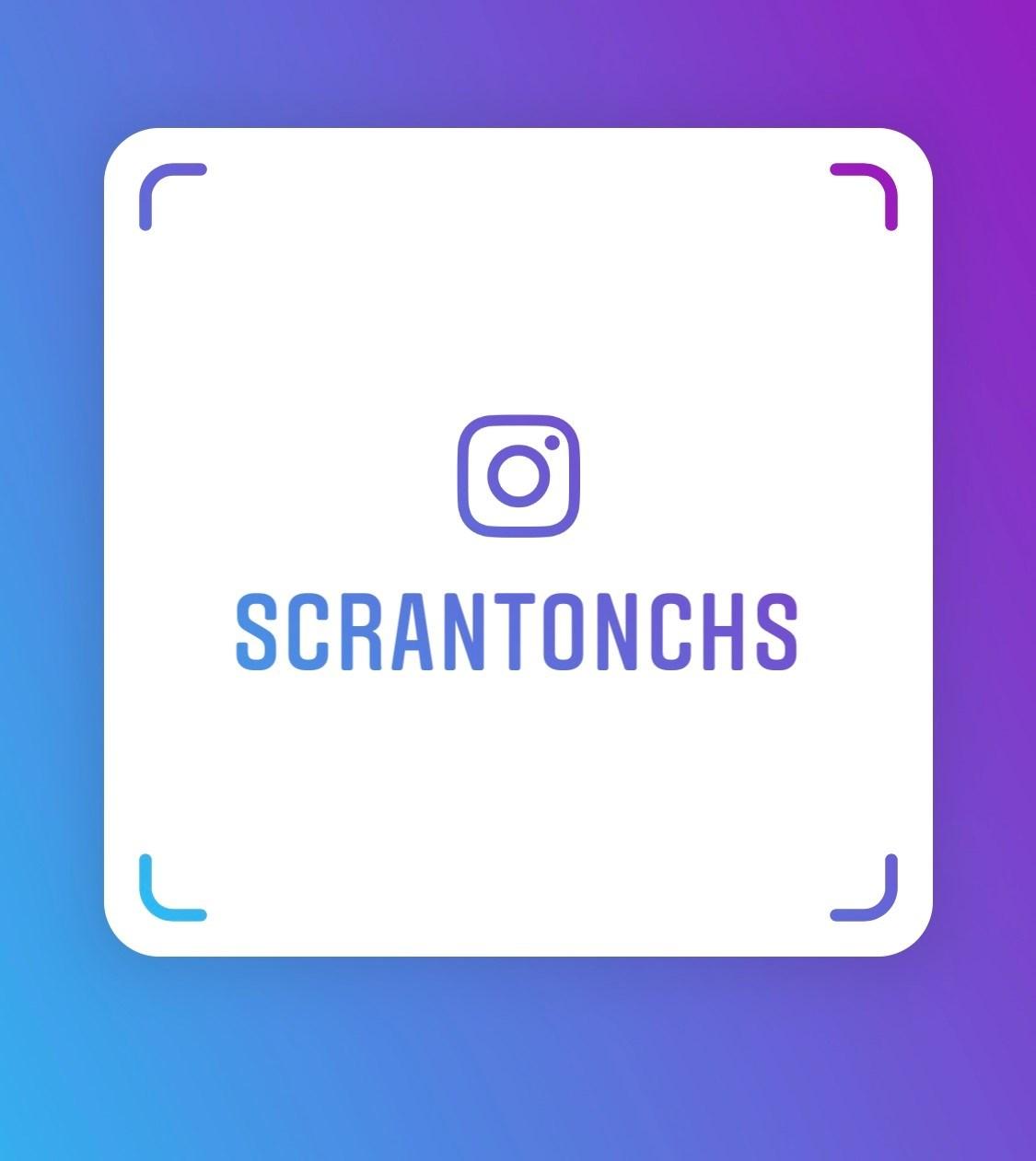
PAGE 15 VOLUME 12, ISSUE 24
#ScrantonCHS
Follow us on Instagram!
Faculty Awards
Faculty Senate Excellence in Graduate Teaching Award
This year Dr. LeeAnn Eschbach, co-director of the School Counseling graduate program, is the recipient of the Faculty Senate Excellence in Graduate TeachingAward. This award recognizes a faculty member who demonstrates dedication to teaching graduate students in a manner that creates an encouraging and intellectually stimulating environment that promotes critical thinking and learning.
Congratulations Dr. Eschbach!

Excellence in Integrating Diversity in Learning Award
This year Dr. Paul Datti, director of the Undergraduate Counseling and Human Services Program, is the recipient of the Excellence in Integrating Diversity in LearningAward. This award recognizes a faculty member whose efforts to integrate diversity in the curriculum has enriched the students’learning experiences.
Congratulations Dr. Datti!

PAGE 16 VOLUME 12, ISSUE 24
Publications
Boyd, L., Burgess, M., Lund, S., & Scott, D. A. (2021). Assessment, diagnosing, and theory. In Scott, D. & Scott, M. (Eds.) Psychopathology: A case-based approach Cognella.
Clark, R., Wilder, D., Kelley, M., & Ryan V. (2020). Evaluation of instructions and video modeling to train parents to implement a structured meal procedure to decrease food selectivity among children with autism. Behavior Analysis in Practice, 1, 1-5.
Datti, P. A. (in preparation for 2021). CSHSE Self-Study Report for Reaccreditation. Counsel for Standards of Human Service Education Accreditation.
Freitas, L., Henry, J. E., Kelley, M. E., & Tonneau, F. (2020). The effects of stimulus pairings on autistic children's vocalizations: Comparing forward and backward pairings. Behavioural processes, 179, 104213. https://doi.org/10.1016/j.beproc.2020.104213
Gadaire, D.M., Senn, L., Albert, K., Shaham, Y., Robinson, T., Passage, M., Topcuoglu, B. (2021). Differential effects of token production and exchange on children’s responding in applied contexts. Learning & Motivation, 73, 101694.
Henry, J.E., Kelley, M.E., LaRue, R.H., Kettering, T.L., Gadaire, D.M., & Sloman, K.N. (2021). Integration of experimental functional analysis procedural advancements: Progressive from brief to extended experimental analyses. Journal of Applied Behavior Analysis.
Kelley, M.E., Clark, R.J., McGarry, K.M., Henry, J.E., Morgan, A.C., Gadaire, D.M., & Sloman, K.N. (in press). Multiple Schedules Facilitate Rapid Noncontingent Reinforcement Schedule Thinning. Behavior Analysis in Practice.
Lund, S., Belcher, T., & Scott, D. A. (2021). Sexual disorders and gender dysphoria. In Scott, D. A. & Scott, M. (Eds.) Psychopathology: A case-based approach. Cognella.
Robinson, T., & Kelley, M. E. (2020). Renewal and Resurgence Phenomena Generalize to Amazon's Mechanical Turk. Journal of the Experimental Analysis of Behavior, 113, 206-213.
Watkins, S. C., Kaopuiki-Nestrick, K. H., Lund, S. K., & Bordonada, T. M (in press) Strengthening the family unit: Building resilience in our communities during COVID-19. Counselors for Social Justice Newsletter.
Presentations
Bordonada, T. M. & Lund, S. K. (2020, November). Social Justice Advocacy Training: An Innovative Certificate Program for Counselor Education. Presentation accepted at the North Atlantic Region Association for Counselor Education and Supervision Biannual Conference, Pittsburgh, Pennsylvania.
Bruch, L.A., & Shelton, S. Attitudes and Access: Honoring History, Defending Dignity, and Embracing Ethics. Pennsylvania Rehabilitation Association, Virtual Conference, April, 2021.
Kelley, M. E. (April 7, 2021). Autism: Searching for Answers. https://www.wvia.org/tv/call-the-doctor/
PAGE 17 VOLUME 12, ISSUE 24
Faculty Fun Fact
We asked our faculty and staff to tell us, What new interest or activity did you try during the pandemic?
Dr. Bruch “Mastering Pie dough; both sweet and savory for baking all sorts of wonderful creations.”
Dr. Troy “I learned how to play several different board games online. I played with family members located across the United States and in Spain.”
Dr. Bordonada “Puzzles and bike riding”
Dr. Datti “Video games! Haven't been a big fan since my teens but have a new appreciation for them.”
Dr. Wilkerson “I downloaded the Steam application on my laptop and learned how to play ‘Magic: The Gathering’ remotely with friends from college.”
Dr. Eschbach “Cross-stitching! I cross-stitched almost all my Christmas gifts. I stopped after Valentine’s Day!”
Dr. Lund “I picked up diamond painting as a hobby. I love doing crafts so this has been perfect for me and I find that it often puts me in a ‘flow’ state.”
Dr. Willis “I tried homeschooling our 9 and 6 year old.”
Dr. Jenson “I received my motorcycle license.”
Dr. Dalgin “I can't say I tried anything too 'new' exactly, although I do a lot more walking on zoom breaks, cooking & baking, and keep on trying to learn how to play the piano.”
Dr. Gadaire “All the gyms were closed, so I became my own fitness instructor. Even got certified to teach Zumba, because why not?”
Ann Keeler “Using YouTube videos to learn new software programs because we went remote.”
PCPS Contact List
Newsletter Staff:
Faculty Advisor: Dr. Mary Troy
Student Editors: Shelby Valvano and Amanda Taylor
PAGE 18 VOLUME 12, ISSUE 24
Name Phone Office Debra Pellegrino, Ed.D Dean, PCPS 570-941- 6305 ELH226 Lori A. Bruch, Ed.D, CRC, LPC, Department Chair 570-941-4308 MGH455 Gerianne Barber, MS, NCC, LPC, CRC, CTC Director 570-941-7635 MGH433 LeeAnn Eschbach, Ph.D, LPC, Interim SC Director 570-941-6299 MGH435 Rebecca Spirito Dalgin, Ph.D, CRC, CPRP, RC Director 570-941-7819 MGH437 Paul Datti, Ph.D, CRC, HS-BCP, CHS Director 570-941-4127 MGH451 Ben Willis, Ph.D, NCC, ACS, CMHC Co- Director 570-941-6172 MGH441 Tiffany Bordonada, Ph.D, CMHC Co-Director 570-941-7487 MGH443
Certified Rehabilitation Counselor (CRC)
The CRC credential is specific to Master’s of Rehabilitation Counseling. The passing of this exam ensures that the counselor fits in nationally with the key competencies for the field. Possessing this credential makes a Rehabilitation Counselor more marketable and distinguished among other counseling professionals. This credential also demonstrates one’s commitment to learning through education, trainings, and practice. The credential can also lead to job placement, advancement in the position or salary, and referrals from medical and non-medical professionals. For more information about the exam and benefits of the credentials please see https://www.crccertification.com/about-crc-certification .
National Counselor Examination for Licensure and Certification
This exam is used to assess the knowledge, skills, and abilities that are required for effective counseling. Passing the NCE is a requirement in many states and used in military health system services. Passing is also needed to get the National Certified Counselor (NCC) credentials. The NCC is the largest national counselor certification in the world. There are specialty certification is addictions, school counseling and clinical mental health as well. For more information about this exam, the benefits, and the difference between a national certification and state licensure, please see http://nbcc.org/Certification/CertificationorLicensure
HS-BCP
Human Services Board Certified Practitioner (HS-BCP)
Graduates of the CHS program are eligible to sit for the Human Services - Board Certified Practitioner (HS-BCP) exam to receive the HS-BCP credential. The credential allows for independent verification of practical knowledge and educational background in human services. With increased competition in this growing field, becoming board certified in human services shows attainment of high standards and allows you to stand out as a part of a distinguished group known for commitment to maintaining excellence in the field. With the number of human services jobs expected to climb rapidly this decade, the HS-BCP credential can help launch a rewarding career. Note that this is one of the very few credentials offered at the undergraduate level. Because of our program's accreditation status with CSHSE, University of Scranton CHS majors who have 15 credits or less to complete are eligible to apply for the credential and sit for the examination prior to graduation. Please see the Center for Credentialing Education’s (CCE) website for more information on the credential and exam: http://www.cce-global.org/HSBCP.
CRC NCE
VOLUME 12, ISSUE 24 PAGE 19
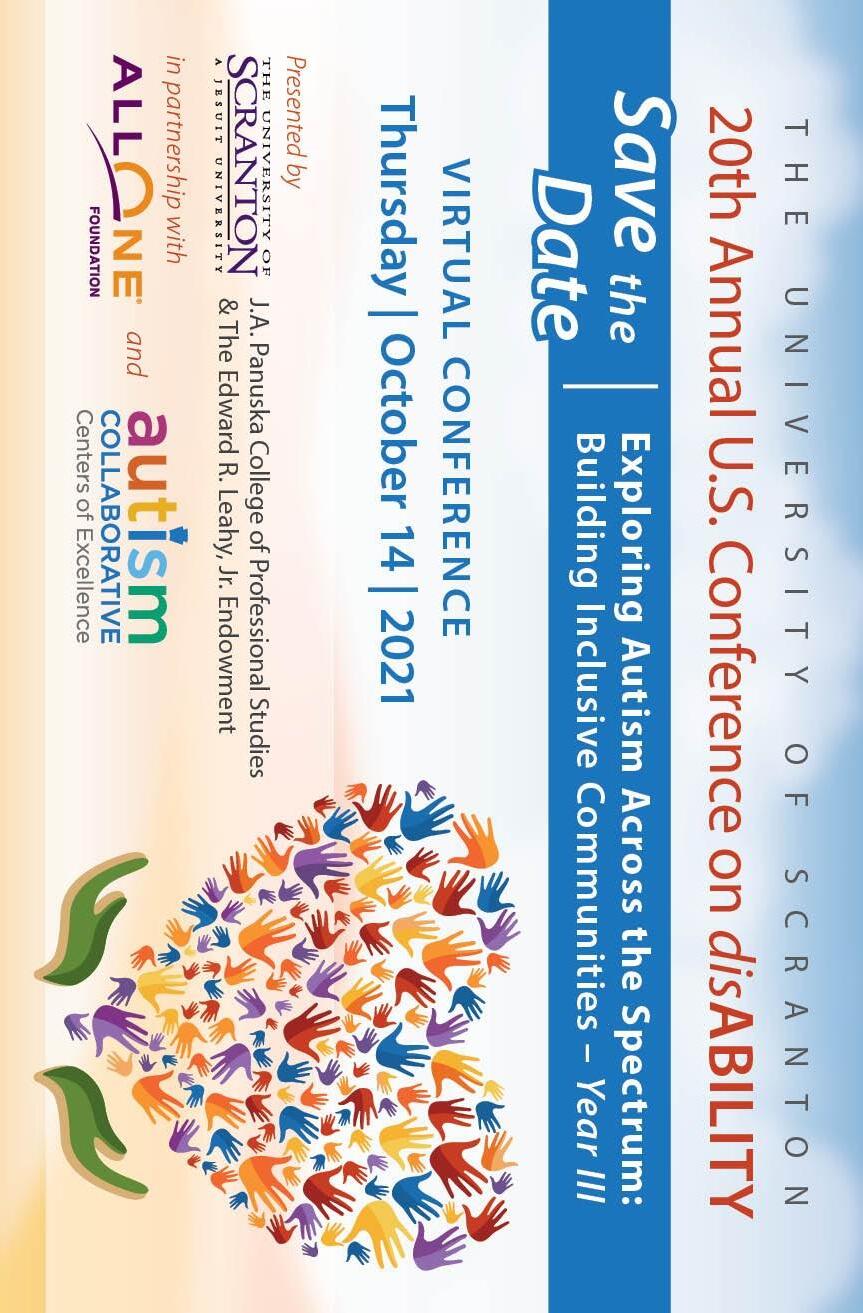
VOLUME 12, ISSUE 24 PAGE 20


























